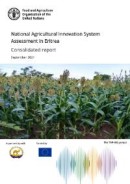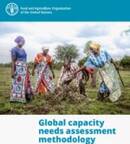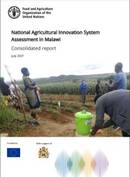Publications
This note is a preview on the agricultural innovation systems (AIS) assessment methodology which is being tested in the nine countries of the European Union-funded TAP-AIS DeSIRA project. It presents the rationale, the steps, ethe expected outputs and outcomes.
Smallholder farmers face a variety of challenges and capacity gaps in accessing digital agricultural extension and advisory services (AEAS). Recent studies have revealed that smallholder farmers’ low digital literacy, along with insufficient digital human capital development and infrastructure investments in rural areas, has become paramount barriers and constraints for them to access and effectively realize the potential of digital AEAS. Therefore, smallholder farmers need to be empowered by innovative approaches to enable them to access digital AEAS and achieve economic, environmental, and social gains sustainably, thus leaving no one behind in the era of digital technology advancements.
FAO Eritrea, in partnership with the Ministry of Agriculture is implementing the national component of a global project entitled “Developing capacity in Agriculture Innovation System project: Scaling up the Tropical Agriculture Platform Framework”. The project aims to strengthen capacities to innovate for climate resilient agriculture and food system.
One of the key activities of the project is the assessment of the Agricultural Innovation System (AIS) in Eritrea The assessment had the objectives to:
- identify critical gaps, needs, opportunities, and good practices to formulate workable recommendations aiming at strengthening and making AIS more effective;and
- develop an understanding of AIS and how it functions and...
Integrating nutrition objectives into agricultural extension and advisory services programmes and policies
The results of the assessment revealed that there were key functions that are contributing to the success of innovation and that some functions were weak or missing. The study found that capacity building was a key function that contributed to the success of the innovations. The main success factors under capacity building were training, leadership, facilitation and farmer organization. Resource mobilization that mainly involved provision of financial and material resources required for the innovations, was another function that was key to the success of the innovations. Coordination and collaboration using District Agricultural Extension Services System (DAESS) structures, along with provision...





